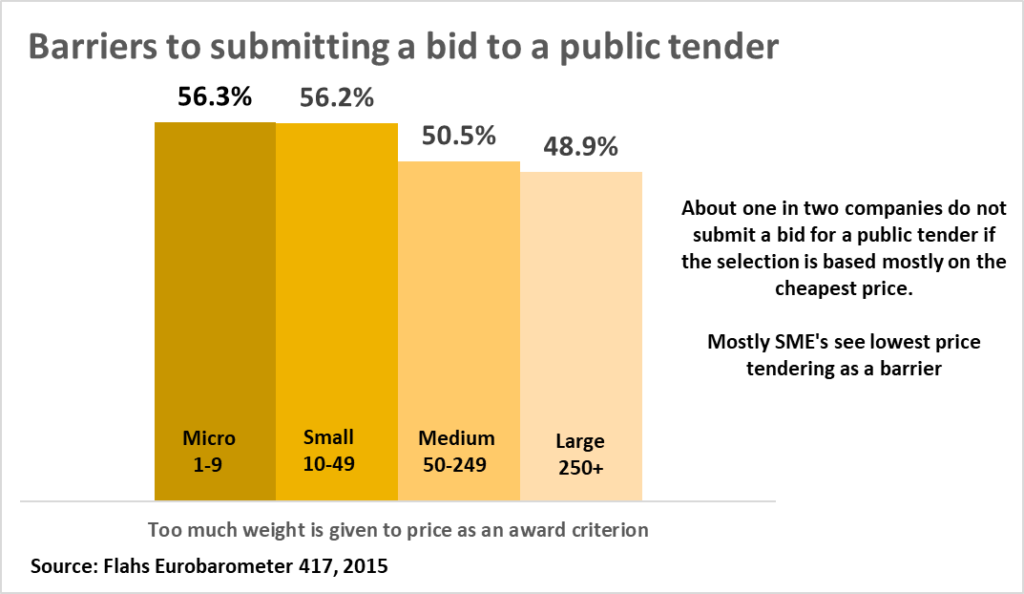This is a crucial time for the future of public procurement in Europe. The European Parliament’s Committee on the Internal Market and Consumer Protection (IMCO) is currently discussing a report that will inform the European Commission’s reform of public procurement rules.
Many of the currently proposed amendments to the report attempt to address the barriers faced by SMEs, with a strong emphasis on simplifying procedures and increasing participation. However, while these amendments acknowledge administrative hurdles, they largely fail to tackle the deeper structural issue: the overreliance on lowest-price tendering.

This gaping lack is particularly concerning given the evidence. As shown in data from the Flash Eurobarometer 417, over half of micro (56.3 per cent) and small (56.2 per cent) enterprises are discouraged from submitting bids when price is the dominant selection criterion. Even among medium-sized businesses with up to 250 employees, the figure remains high at 50.5 per cent. This clearly shows that the cheapest-price model is a structural barrier to entry, especially for smaller enterprises.
Despite this situation, many of the proposed amendments affecting SMEs focus on simplification, digital tools and procedural transparency, with little to no concrete measures addressing the social and qualitative dimensions of procurement. Notably absent is any strong push for the inclusion of collective agreements or labour standards – factors critical to creating a level playing field for SMEs that prioritise decent work over cost-cutting.
If policymakers truly want to improve SME access to public contracts, they must go beyond procedural adjustments and push for a broader shift toward quality-based procurement. This includes embedding social criteria, requiring respect for collective agreements and ensuring that public contracts reward value, not just cost savings.
Public procurement reform should not just open the door – it must ensure that SMEs can walk through it without having to undercut their values or their workers.